Innovation Collaboration

How do renewable energy policies influence innovation and technology development ?
Renewable energy policies are crucial for driving innovation and technology development in the clean energy sector. These policies provide incentives for research, investment, and deployment, creating a favorable environment for technological advancements and innovation. Government support and funding, regulatory frameworks, market incentives, and collaboration and partnerships are all essential factors that influence innovation and technology development in this sector. By providing financial assistance, setting standards and requirements, creating demand for clean energy solutions, and fostering collaboration between different stakeholders, renewable energy policies help to accelerate the development of new technologies and improve existing ones. As we continue to face challenges related to climate change and energy security, it is essential that we continue to invest in renewable energy solutions and support policies that encourage innovation and progress in this field.
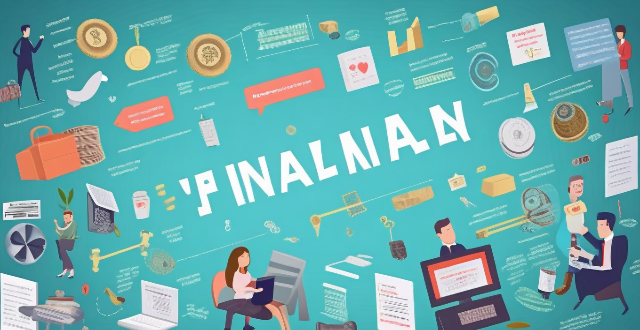
How does Fintech drive innovation in the financial sector ?
Fintech is driving innovation in the financial sector by enhancing efficiency, democratizing access to services, improving customer experience, facilitating financial inclusion, enhancing security and compliance, and fostering innovation and collaboration.

How can educational psychology be used to foster creativity and innovation in students ?
Educational psychology can be used to foster creativity and innovation in students by understanding their cognitive, emotional, and social needs. This involves encouraging curiosity, providing challenges, creating a safe environment, promoting resilience, collaboration, and valuing diversity. Teaching strategies such as inquiry-based learning and differentiated instruction can also enhance these qualities. Alternative assessments like portfolio assessment and performance tasks, along with formative assessment through feedback mechanisms and self-assessment, can further support creativity and innovation in students.
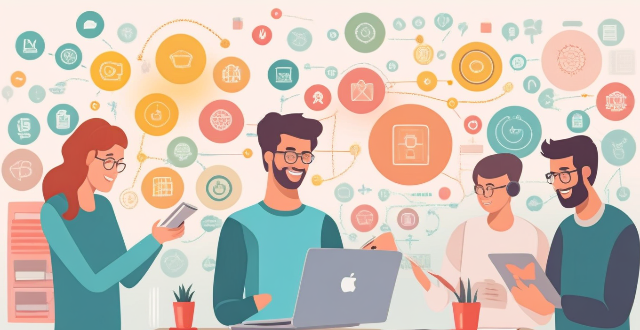
How can technology and social media be leveraged to enhance student leadership experiences ?
Technology and social media can enhance student leadership experiences by providing platforms for communication, collaboration, innovation, and professional networking. Students can use instant messaging tools to improve communication skills, project management tools for better collaboration, online learning platforms for fostering innovation, and LinkedIn for building professional networks. Educators should guide students in using these tools effectively and responsibly.
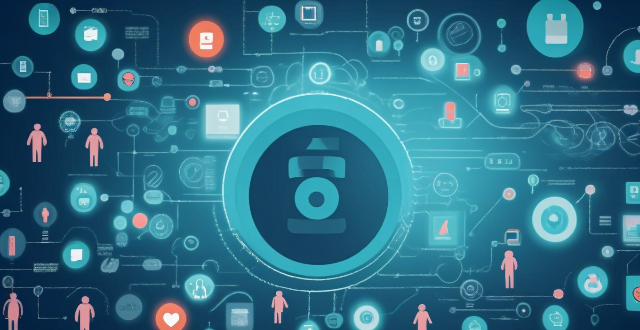
What role does innovation play in the success of tech stocks ?
Innovation is key to the success of tech stocks, impacting product development, market expansion, efficiency, disruption, and investor sentiment. Tech companies that prioritize innovation often outperform competitors and provide strong returns for shareholders.

What are the benefits of parent-teacher collaboration in education ?
The article discusses the importance of parent-teacher collaboration in education. It mentions that such collaboration can lead to improved student performance, increased student motivation, enhanced parental involvement, improved classroom management, and greater access to resources. Overall, it emphasizes the significance of parents and teachers working together to create a supportive learning environment for students.

Is there any collaboration in the singer's new album ?
The singer's new album features several collaborations with other artists, including Artist Name 1 on "Song Title", Artist Name 2 on "Song Title", and Artist Name 3 on "Song Title". These collaborations add depth and variety to the album, showcasing the singer's versatility and ability to work well with different genres and styles.

What is the impact of financial regulation on innovation in the financial sector ?
Financial regulation plays a critical role in the innovation landscape of the financial sector, with both positive and negative impacts. Positively, it promotes transparency and trust, encourages responsible innovation, and facilitates access to capital. However, it can also slow down the pace of innovation, restrict experimentation, and stifle international competitiveness. To mitigate these negative effects, adaptive regulation, collaborative approaches, and education and training are recommended. Striking a balance between fostering innovation and ensuring safety is crucial.

What role could international cooperation play in the development of a lunar base ?
International cooperation is vital for lunar base development, allowing cost sharing, resource optimization, innovation collaboration, risk mitigation, comprehensive data sets, research collaboration, diverse perspectives, joint missions, diplomatic ties, global leadership, cross-cultural learning, global community building, harmonized regulations, emergency response planning, environmental impact discussions, and long-term maintenance plans.

What role do technology and innovation play in water resource management ?
Water resource management is a critical aspect of modern society, and technology and innovation play a crucial role in improving the efficiency and effectiveness of this process. Technology and innovation have made it easier to collect and analyze data on water quality, quantity, and usage patterns. This information can be used to identify trends and make informed decisions about how to manage water resources more effectively. Technology and innovation also play a significant role in promoting efficient water use, water quality management, and climate change adaptation. By using advanced irrigation systems, smart meters, and other technologies, water providers can reduce waste and ensure that water is used only where it is needed. Technologies such as ultraviolet disinfection, reverse osmosis, and membrane bioreactors can remove contaminants from water more effectively than traditional methods. New construction techniques and materials can make water infrastructure more resistant to extreme weather events like floods and droughts.
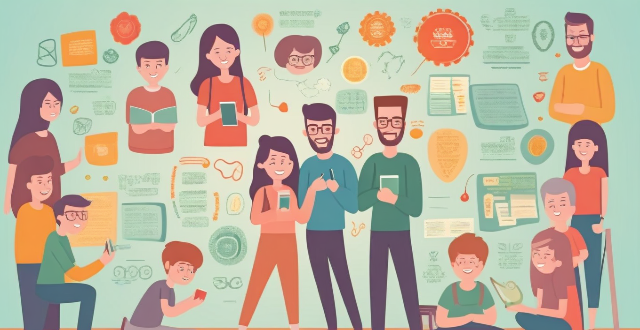
What are some common challenges that arise in parent-teacher collaboration, and how can they be overcome ?
Common challenges in parent-teacher collaboration include lack of communication, time constraints, cultural differences, resistance to change, unclear roles and responsibilities, conflicting priorities, lack of trust, inconsistent messages, limited access to information, and emotional barriers. To overcome these challenges, strategies such as improving communication, addressing time constraints, bridging cultural differences, embracing change, clarifying roles and responsibilities, building trust, facilitating access to information, and addressing emotional barriers can be implemented. By employing these strategies, parents and teachers can work together more effectively to support student success while overcoming common challenges in their collaboration.

How can technology transfer and innovation support global climate governance efforts ?
Technology transfer and innovation support global climate governance by reducing greenhouse gas emissions, adapting to climate change, and mitigating its impacts. They also enable data collection and analysis, international collaboration, and financing for climate action.
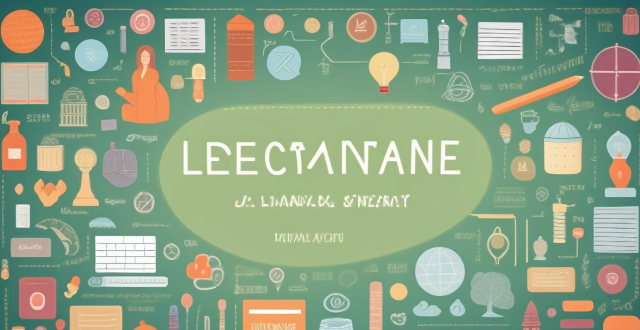
What are the latest trends in educational technology innovation ?
The text describes the latest trends in educational technology innovation, including personalized learning, artificial intelligence (AI), augmented reality (AR) and virtual reality (VR), mobile learning, and gamification. Personalized learning tailors instruction to meet individual student needs, while AI analyzes data from student performance to provide personalized recommendations for improvement. AR and VR create immersive learning experiences through simulations and virtual field trips. Mobile learning uses mobile devices to deliver educational content and facilitate communication between students and teachers. Gamification incorporates game design elements into non-game contexts, such as education, to make learning more fun and engaging. The benefits of these trends include improved student engagement and motivation, increased retention and understanding of material, better preparation for future careers and lifelong learning, and the development of important skills such as critical thinking, problem-solving, and collaboration.

What regulatory challenges do Fintech companies face ?
Fintech companies face regulatory challenges such as compliance with existing regulations, adapting to evolving regulations, and balancing innovation and regulation. They must deal with lack of clarity in laws, conflicting regulations, high cost of compliance, rapid changes in regulations, collaboration with regulators, fostering innovation, risk management, and educating stakeholders. To succeed, fintech companies must stay informed, collaborate with regulators, foster innovation while managing risks, and educate their stakeholders about regulatory requirements.
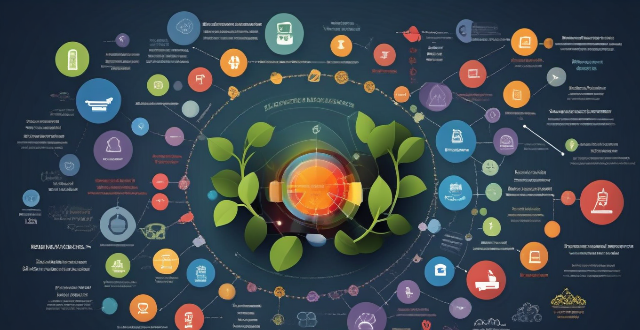
How can technology support climate governance efforts ?
Technology significantly aids climate governance by enhancing monitoring, data analysis, and collaboration. Satellite imagery and remote sensing provide detailed environmental insights, while sensor networks offer real-time data collection for precise agriculture and environmental monitoring. AI and machine learning enable pattern recognition and optimization models for energy efficiency. Climate models help predict future scenarios and assess risks. Digital platforms foster global collaboration, while e-learning resources and social media campaigns raise awareness. Smart regulation systems and crowdsourcing platforms aid policy formulation and public participation in climate governance efforts.

How do international collaborations influence the development of rocket technology ?
International collaborations play a crucial role in the development of rocket technology by fostering knowledge exchange, sharing resources, and pooling expertise to overcome complex challenges. Here's a detailed look at how these partnerships influence advancements in this sector: 1. **Knowledge Exchange**: - **Cross-pollination of Ideas**: Collaborative efforts allow for the cross-pollination of ideas from different countries, each bringing unique perspectives and solutions to the table. This diversity of thought can lead to innovative breakthroughs that might not have been possible within a single nation's framework. - **Education and Training**: Through international partnerships, scientists, engineers, and technicians have access to educational programs and training opportunities that broaden their skill sets and keep them abreast of the latest advancements in rocket technology. 2. **Resource Sharing**: - **Financial Resources**: Developing advanced rocketry is costly. Partnerships can spread the financial burden across multiple nations, making ambitious projects more feasible and sustainable. - **Technical Resources**: Different countries may specialize in specific areas of rocket technology. By collaborating, they can share tools, facilities, and materials, accelerating research and development processes. 3. **Expertise Pooling**: - **Specialization**: Each country often has its areas of specialization. International collaborations enable the concentration of specialized knowledge and skills on particular aspects of rocket technology, leading to more efficient and effective outcomes. - **Problem-Solving**: When faced with complex engineering problems, a collaborative approach means that diverse teams can work together to find solutions more quickly and effectively than isolated efforts might achieve. 4. **Risk and Cost Sharing**: - **Reducing Individual Risk**: By collaborating, nations can share the risks associated with rocket development. This risk distribution makes it easier for countries to embark on ambitious projects without bearing the full consequences of potential failures. - **Cost Efficiency**: Sharing the costs of research, development, and manufacturing among partners can make rocket technology more affordable, allowing for greater investment in innovation rather than duplicative efforts. 5. **Global Standards and Regulations**: - **Unified Approach**: Collaboration helps in establishing global standards for safety, quality, and performance. These standards ensure consistency in the industry and make it easier for different countries to work together seamlessly. - **Compliance and Regulation**: International cooperation also facilitates the creation of regulations that govern the responsible use of space, preventing conflicts and ensuring the sustainable exploration and use of space for all nations. In conclusion, international collaborations are instrumental in propelling the development of rocket technology forward. They create an environment where resources, knowledge, and expertise are shared, risks and costs are distributed, and global standards are established, ultimately benefiting all participants in the quest for space exploration and beyond.

How do remote education platforms facilitate collaboration among students ?
Remote education platforms offer various features to facilitate collaboration among students, including real-time interaction through instant messaging and video conferencing, shared workspaces with collaborative documents and visual aids, group project management with task assignment and tracking, discussion forums for asynchronous discussions and idea exchange, multimedia sharing and interactive learning tools, and feedback and assessment mechanisms for peer review and group performance metrics. These tools enhance the educational experience by promoting interaction and cooperation among peers, regardless of geographical boundaries.

Can participating in team sports boost morale and collaboration among coworkers ?
Participating in team sports can boost morale and collaboration among coworkers by improving communication, increasing trust and respect, enhancing problem-solving skills, and promoting teamwork.
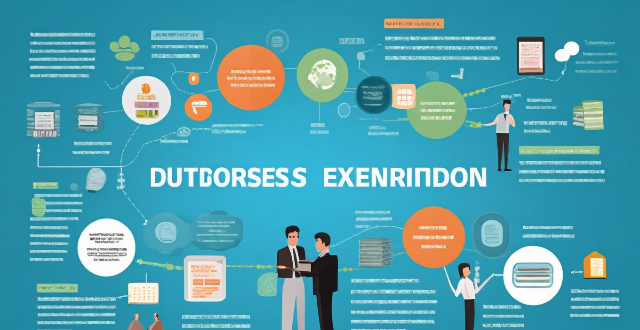
What is cultural fusion and why is it important ?
The text discusses cultural fusion, which is the blending of different cultural elements from various backgrounds. This process involves exchange, adaptation, and integration of traditions, customs, languages, cuisines, arts, etc. Cultural fusion is important because it promotes diversity and inclusivity, drives innovation and creativity, facilitates global understanding and peace, enhances economic opportunities, and supports sustainable development. It is essential for promoting harmony, innovation, and sustainability in an increasingly interconnected world.

How do anti-bacterial fabrics contribute to sportswear innovation ?
Anti-bacterial fabrics contribute to sportswear innovation by improving hygiene, enhancing durability, improving performance, and offering customization options. They reduce the growth of bacteria in garments, keeping them fresher for longer periods, extending their lifespan, and providing a comfortable and dry environment during physical activities. Manufacturers can choose from various antimicrobial agents and treatments to create unique garments that cater to specific needs.

What role do nanomaterials play in modern battery innovation ?
Nanomaterials are revolutionizing battery technology by enhancing performance, increasing energy density, and improving safety. These materials have unique properties such as high surface area, electrical conductivity, and chemical reactivity that make them ideal for use in batteries. Nanomaterials can increase energy density, improve charging and discharging rates, extend the lifespan of batteries, enhance safety, and reduce environmental impact. With ongoing research, it is likely that we will see even more exciting developments in the world of batteries thanks to the unique properties of nanomaterials.

What are the latest trends in transportation innovation ?
Transportation innovation trends include autonomous vehicles, electric vehicles (EVs), hyperloop technology, drone delivery, and smart mobility solutions. Self-driving cars aim to reduce accidents caused by human error and make transportation more efficient. Electric vehicles help reduce carbon emissions and improve energy efficiency. Hyperloop technology could revolutionize long-distance travel by moving people or goods through large tubes at high speeds with reduced air resistance. Drones are being used for delivery services, particularly in rural areas where traditional delivery methods may not be cost-effective. Smart mobility solutions involve the use of digital technologies to create more efficient and sustainable transportation systems.
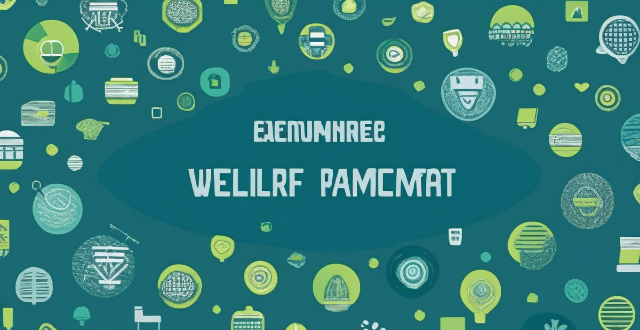
Can starting a small business be a path to significant wealth growth ?
Starting a small business can be a path to significant wealth growth, but it comes with challenges and risks. Advantages include entrepreneurial opportunities, flexibility, innovation, and job creation. However, financial risk, market competition, regulatory compliance, and cash flow management are potential challenges. Successful strategies involve research, focusing on customer needs, building a strong brand, networking, and continuous innovation. With careful planning and hard work, entrepreneurs can increase their chances of success and achieve long-term financial stability.

What strategies can be used to promote parent-teacher collaboration in schools ?
Promoting parent-teacher collaboration in schools is crucial for student success and well-being. Strategies include open communication, involvement opportunities, parent education, shared responsibility, technology integration, and celebrating diversity. Regular updates, volunteer programs, workshops, home-school agreements, online portals, and multicultural events are among the tactics that can foster a strong partnership between parents and teachers.

How has artificial intelligence contributed to the innovation of sports equipment ?
Artificial intelligence has significantly contributed to the innovation of sports equipment by improving its design, functionality, and performance. AI algorithms optimize sports equipment designs based on athlete data and feedback, generate personalized training programs, track performance through sensors and wearable devices, and develop advanced coaching tools. These advancements have transformed the way athletes train, compete, and perform, with more exciting developments expected in the future.
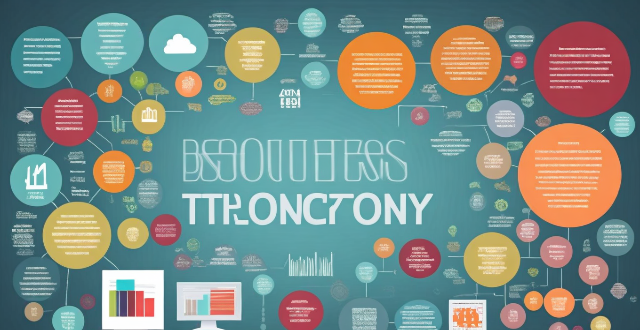
How has technology impacted international cooperation in recent years ?
The text discusses the impact of technology on international cooperation in various sectors such as communication, collaboration tools, access to information, globalization of trade and commerce, and environmental sustainability. Technology has improved communication through instant messaging, social media, and email, enhanced collaboration tools like project management software and video conferencing, increased access to information with open source data and online news sources, globalized trade and commerce through e-commerce platforms and digital payment systems, and promoted environmental sustainability with climate modeling and renewable energy technologies. Overall, technology has had a significant positive impact on international cooperation.

How can I build a strong relationship with my investors ?
The article emphasizes the importance of building a strong relationship with investors for the success of a business. It outlines several key strategies to achieve this, including communication, trustworthiness, collaboration, recognition, professionalism, and continuous improvement. The tips provided suggest that regular updates, transparency, active listening, fulfilling promises, integrity, partnership approach, joint decision making, appreciation, acknowledgement of success, punctuality, high-quality presentation materials, seeking learning opportunities, and creating a feedback loop are all crucial elements in fostering a positive relationship with investors. By following these guidelines, businesses can establish a strong foundation of trust, transparency, and collaboration that will lead to mutually beneficial relationships and ultimately contribute to the success of their ventures.

How do financial regulations impact banks and other financial institutions ?
Financial regulations are crucial for maintaining stability in the banking and financial sector. They protect depositors' interests, promote fair competition, prevent financial crises, and impact innovation and efficiency. Regulations like capital adequacy ratios, liquidity coverage ratios, and stress testing ensure depositors' safety. Antitrust laws and consumer protection laws encourage fair competition among banks. Prudential supervision and Basel III help prevent financial crises. However, excessive regulation may negatively affect innovation and profitability. Striking a balance between safety and promoting innovation is key.

What is the role of education in raising awareness about biodiversity conservation ?
Education plays a vital role in promoting awareness and understanding of biodiversity conservation. It fosters environmental stewardship, enhances scientific literacy, develops critical thinking skills, builds empathy, informs policy decisions, fosters interdisciplinary approaches, and generates public support for conservation efforts. Actionable steps include curriculum integration, hands-on learning experiences, interdisciplinary collaboration, community outreach, lifelong learning opportunities, research support, partnerships with organizations, technology use, international collaboration, and monitoring and evaluation to ensure continuous improvement in educational programs aimed at biodiversity conservation.

What are the benefits of using a digital tool for note-taking ?
The article discusses the advantages of using digital tools for note-taking, which include increased efficiency, improved learning and retention, environmental benefits, and collaboration opportunities. Digital notes can be taken quickly, organized easily, searched efficiently, and accessed from anywhere. They also offer visual aids, audio recordings, linking capabilities, and review options that enhance learning and retention. Additionally, digital note-taking reduces paper waste, energy consumption, and physical storage needs, contributing to a more sustainable environment. Finally, digital tools facilitate collaboration by allowing note sharing, real-time editing, version control, and feedback mechanisms. Overall, digital note-taking is an optimal choice for students, professionals, and anyone looking to optimize their note-taking experience.